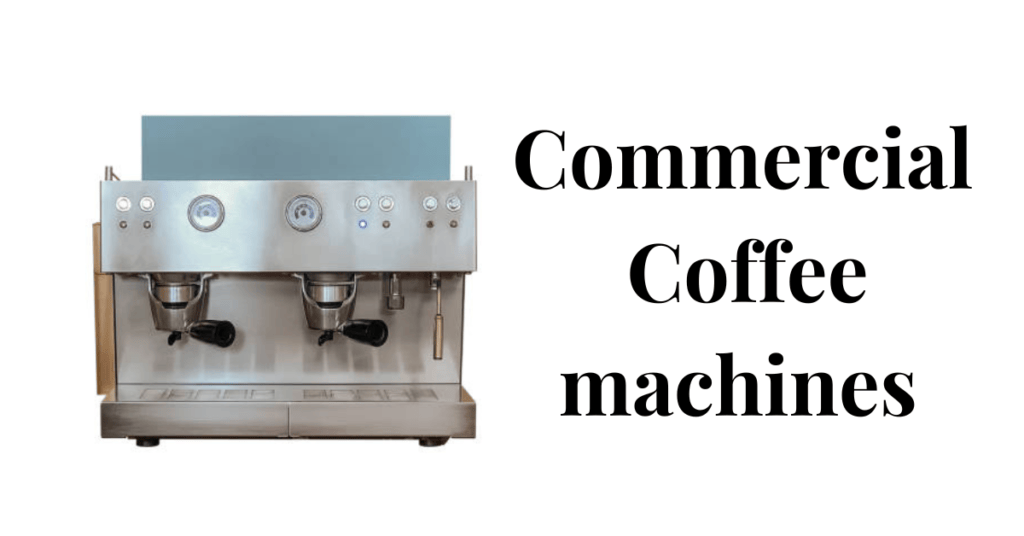Coffee machines play a vital role in homes, offices, and cafés. While many models now turn off automatically for convenience and safety, some users still wonder if these machines need a grease trap. This brief guide explains what grease traps are, how they work, and whether coffee machines actually require them.
As an affiliate site, we are associated with the amazon. We might receive a commission when you use links or recommendations on our website to make qualified purchases. The cost you pay for the goods or services is unaffected by this.
Table of Contents
Understanding Grease Traps

Grease traps are commonly found in commercial kitchens where large amounts of fats, oils, and grease (FOG) are generated. They play a crucial role in preventing these substances from entering the wastewater system and causing blockages. However, when it comes to coffee machines, the situation is different, and it’s important to understand why.
What is a Grease Trap?
A grease trap, also known as a grease interceptor, is a plumbing device designed to capture greases and solids before they enter a wastewater disposal system. These devices are crucial in commercial kitchens where large quantities of FOG are produced, helping to prevent sewer blockages and environmental contamination.
How Does a Grease Trap Work?
Grease traps function by slowing down the flow of warm, greasy water, allowing it to cool. As the water cools, the grease solidifies and floats to the top, while solids settle at the bottom.
The now grease-free water flows out of the trap and into the sewer system, while the accumulated grease and solids remain in the trap. Regular maintenance is necessary to ensure the trap works effectively and doesn’t become a source of blockage itself.
Where Are Grease Traps Typically Used?
Grease traps are commonly used in environments where significant amounts of FOG are generated, such as commercial kitchens, restaurants, and food processing facilities. Law often requires these locations to install grease traps to prevent the contamination and blockage of public sewer systems.
Do Coffee Machines Require a Grease Trap?
While grease traps are essential in many food service operations, their necessity for coffee machines is not as clear-cut. Coffee machines primarily produce liquid waste, which consists mostly of water and coffee grounds, rather than the fats, oils, and grease that grease traps are designed to intercept. Let’s explore this further.
The Nature of Coffee Machine Waste
Coffee machines produce a different type of waste compared to commercial kitchen appliances. The primary waste products from coffee machines are liquid waste, consisting mainly of water and coffee grounds.
Unlike the grease-laden waste from fryers or griddles, coffee machines do not generate significant amounts of FOG, which are the primary substances that grease traps are designed to intercept.
Coffee Grounds vs. Grease
Coffee grounds, while potentially problematic if not disposed of properly, do not behave like grease. They are heavier, do not float on water, and do not congeal like fats or oils. Instead, coffee grounds can settle in pipes and, over time, contribute to clogs. However, this is a different issue than the one grease traps are meant to address.
Regulatory Requirements
Most regulatory guidelines do not mandate the installation of grease traps for coffee machines, as these devices are not considered significant sources of FOG. However, it is always wise to check local regulations or consult a plumbing professional to ensure compliance with specific regional requirements.
Best Practices for Coffee Machine Maintenance
Proper maintenance of your coffee machine is crucial for ensuring it continues to operate efficiently and produces high-quality coffee. Adopting a consistent maintenance routine can extend the life of your machine and prevent costly repairs. Below are some key practices to follow.
Regular Cleaning
Regular cleaning is essential to prevent the buildup of coffee oils, residue, and other debris that can affect the taste of your coffee and the performance of your machine. Daily cleaning is recommended, especially in high-usage environments like cafes, to maintain optimal operation.
Proper Disposal of Coffee Grounds
Coffee grounds should never be rinsed down the sink to avoid potential plumbing issues. Instead, they should be disposed of in the trash or composted. Some establishments even offer used coffee grounds to customers for gardening purposes, as they make excellent compost material.
Descaling
Limescale buildup is a common issue in coffee machines, particularly in areas with hard water. Regular descaling is essential to maintain the efficiency of the machine and to extend its lifespan. Always use a descaling solution recommended by the manufacturer, and follow the instructions carefully to avoid damaging the machine.
Water Filtration
Using filtered water can significantly reduce the buildup of minerals in your coffee machine, improving both the taste of your coffee and the longevity of your machine. Filtered water minimizes the need for frequent descaling and helps maintain the machine’s performance.
Alternatives to Grease Traps for Coffee Machines
While coffee machines generally do not require grease traps, there are other options that can help manage the waste produced by these devices. These alternatives can help prevent plumbing issues and ensure the smooth operation of your coffee machine.
Solids Interceptors
For businesses that operate multiple coffee machines or high-volume coffee production, a solids interceptor can be a useful addition to the plumbing system. Unlike grease traps, solids interceptors are designed specifically to capture debris like coffee grounds, preventing them from entering and potentially clogging the wastewater system.
Regular Plumbing Maintenance
For businesses that rely heavily on coffee machines, regular plumbing maintenance is advisable. Scheduling periodic inspections and cleanings can help prevent blockages caused by coffee grounds and other debris, ensuring smooth operation and avoiding costly repairs down the line.
Read More Guides
Can Coffee Machine Make You Sick: Navigating the Health Landscape of Coffee Makers
Do Coffee machines use a lot of Electricity: Understanding the Electricity usage of your Coffee Machine
How to color a Coffee filter: Discover the Art of Coffee Filter Coloring
How to dye a Coffee Filter: Transforming Coffee filters into vibrant works of art
FAQs || Coffee Machine Require a Grease Trap
1. Can coffee grounds clog drains?
Yes, coffee grounds can contribute to drain clogs if they are washed down the sink. They do not dissolve in water and can accumulate in pipes over time, leading to blockages. It’s best to dispose of coffee grounds in the trash or compost them.
2. Do home coffee machines need a grease trap?
No, home coffee machines do not require a grease trap. Grease traps are designed for commercial kitchens that produce large amounts of grease, which is not an issue with coffee machines.
3. How often should I descale my coffee machine?
The frequency of descaling depends on the hardness of the water in your area and the amount of usage your machine gets. Generally, it is recommended to descale your coffee machine every 2-3 months for optimal performance.
4. Is it safe to use vinegar to descale my coffee machine?
While some people use vinegar as a natural descaler, coffee machine manufacturers do not always recommend it. Vinegar can leave an odor and may not be as effective as commercial descaling solutions specifically designed for coffee machines.
5. Can I use coffee grounds in my garden?
Yes, coffee grounds are beneficial for gardens. They are rich in nitrogen and can be added to compost or used as mulch, particularly for plants that thrive in acidic soil.
Conclusion
In summary, do not Coffee machine require a grease trap because they do not produce the type of waste that these devices are designed to handle. However, proper maintenance—including regular cleaning, descaling, and responsible disposal of coffee grounds—is crucial for keeping your coffee machine in top condition.
By following these best practices, you can ensure that your coffee machine continues to operate efficiently, delivering delicious Coffee machine require a grease trap.







